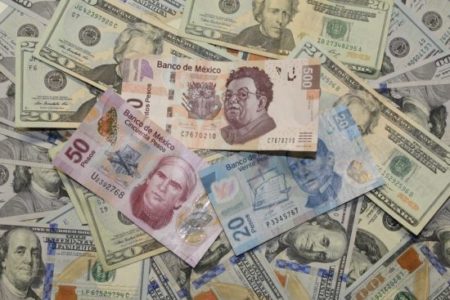It is estimated that there are between 10,000 and 75,000 million pesos in “inactive” accounts in Mexican banks
The Government of Mexico has a new source of financing: bank accounts that have not shown activity or have been abandoned by their owners. The Mexican Congress just approved a reform to the Law of Credit Institutions so that the money, interests, or income of accounts that do not show deposits or withdrawals in six years can be taken by the Mexican Government to finance security tasks.
Although the law already considered taking the resources from the abandoned accounts to deliver them to a public charity, this new reform considers that if the amounts in the accounts are less than 51,958 pesos, (that is, 540 Units of Measurement and Update), they will be allocated to a public charity, while the higher amounts will be allocated to public security. As provided in the reform, 45% of the abandoned money will be for the Federation, 30% for the States, and 25% for the municipalities and mayors.
“One of the problems that they are going to have is due to transparency issues, since in reality we do not know how many accounts are in that assumption or what is the total amount they house,” says Mario Di Costanzo, a financial consultant and former president of the National Commission for the Protection and Defense of Users of Financial Services (Condusef).
However, there is no precise figure of the money that can be in this situation of alleged abandonment or inactivity. Ignacio Mier Velasco, a deputy who has promoted this reform, indicates that it may be at least 10,000 million pesos and that it would be available immediately, while the estimates of the National Banking and Securities Commission (CNBV) indicate that it may be more. of 75,000 million. “Resources that do not have a legal origin, that come from organized crime, are housed in the financial system,” said the deputy, who belongs to the president’s party, Morena.
“The only ones who can know how much it amounts to and how many accounts there are, are the banks themselves,” explains Di Costanzo. Banking secrecy is the reason why these institutions do not disclose these amounts since it is based on the protection that banks must grant to information related to deposits and fundraising of any nature that they receive from their clients. “It is understood that this information is part of the privacy of the clients of the financial system. If this norm did not exist, any person could request in a bank, for example, information on the movements of a person’s accounts”, explains the CNBV.
Additionally, there may be other inconsistencies with bank accounts that do not register activity. Currently, the Deposit Account Beneficiary Consultation Information System is a mechanism that Condusef makes available to users for those people who are presumed beneficiaries of a deposit account of a deceased relative. “What will happen if an account is left without a beneficiary, or if it is being litigated?” reflects the former president of the Condusef.
The insecurity that prevails in the country has led the Administration of Andrés Manuel López Obrador to allocate more resources to security issues. According to the Federation’s Expenditure Budget Project for 2023, the Government plans to spend 252,818 million pesos for the Secretaries of National Defense, the Navy, the Security, and Citizen Protection Secretariat, and the National Guard. This is an increase of 7.4% of the approved budget for these dependencies in 2022. “I think the Government is looking to obtain resources from anywhere,” says Di Costanzo. “It also reflects the crisis of resources that exists, due to the indiscriminate spending that has been had in many other projects,” he reflects.
TYT Newsroom


